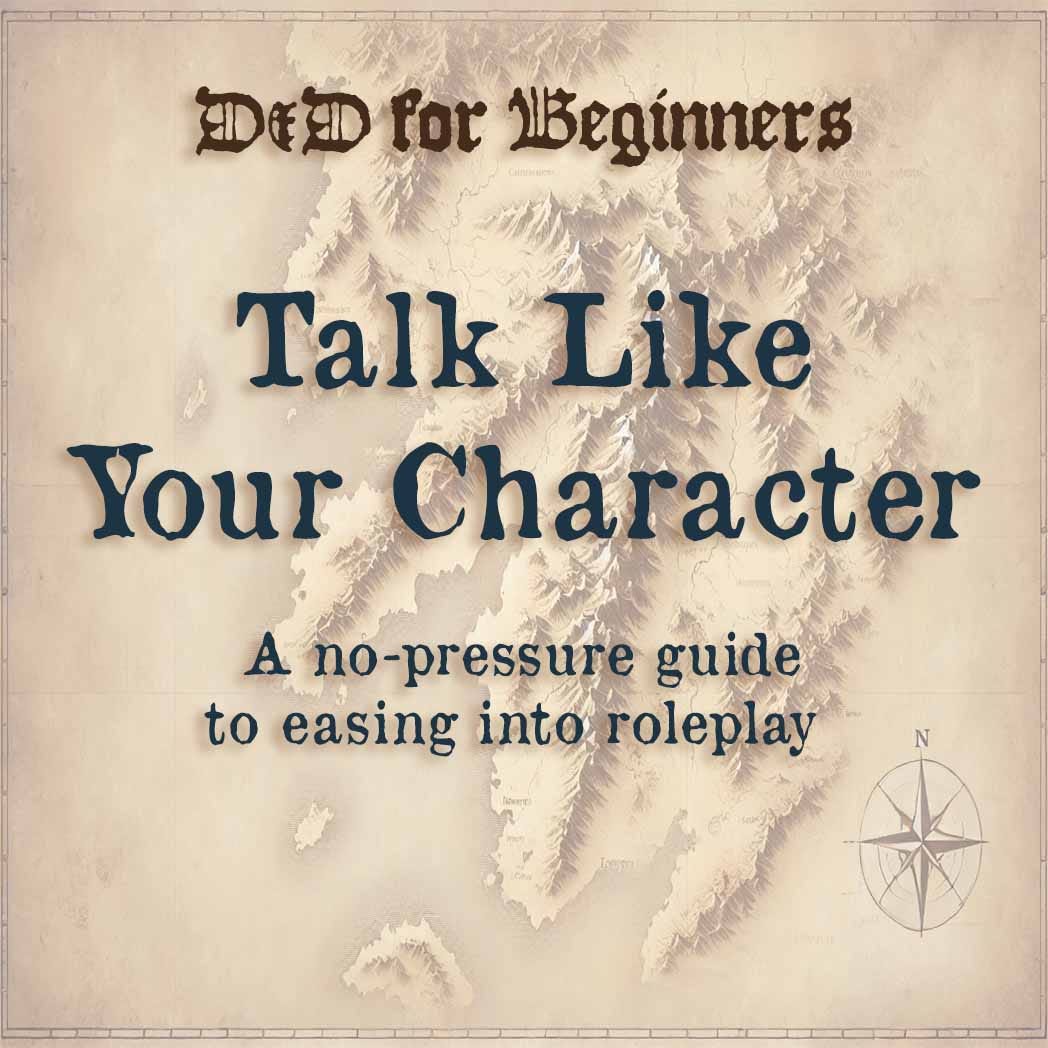Talk Like Your Character
A no-pressure guide to easing into roleplay without feeling like a theater kid.
Want to stop saying, “My character does this,” and actually be your character? Good. Let’s make that happen.
Welcome to D&D for Beginners. Join Professor Lump (but I prefer "Richard") Crackfang, the learned scholar and wizard, in exploring the most common questions of new and early D&D players. If you haven't yet, subscribe free here:
Here are some tips to help you make that transition:
1. Understand Your Character
Define Personality and Voice: Think about how your character would speak, their tone, and their vocabulary. Are they formal or casual? Educated or crude? Do they use slang, metaphors, or stick to short, direct statements? Do they give a damn what others think? This helps you craft dialogue that feels authentic to them.
Consider Physicality: Imagine how your character moves, sits, or gestures. Body language is an opportunity for you to communicate without having to explicitly communicate. For example, a confident character might stand tall with broad gestures, while a shy one might fidget or avoid eye contact.
2. Start Small
Practice Short Responses: Instead of narrating "My character says hello," try simply saying, “Hello there!” in their voice. Gruff and impatient? “What do you want.” Cheerful? “Hiya!” Suspicious? “Who’s askin’?” This allows you to ease into speaking as your character without overthinking it.
Use Prompts: If you're unsure how to start, respond to in-game questions or situations with simple in-character phrases. For example, if asked about your background, reply with something like, "I grew up in the shadow of the mountains—hard life, but it made me strong."
3. Use Tools to Stay In-Character
Adopt a Voice: Using a distinct accent or speech pattern can help separate your character from yourself. This doesn’t have to be dramatic—subtle changes in pitch or tone work just as well. This is the perfect example of modeling a TV or movie character. How would Indiana Jones respond to "Umm... dude, why are you in my snake pit?" Contrast that with how Sheldon Cooper would respond. Or Rambo. Or Mimi from The Drew Carey Show. Same question; totally different answers, right?
Immerse Through Details: Incorporate elements like thematic slang or references from your character’s backstory into dialogue. For example, a sailor might use nautical terms like “batten down” or “adrift” in conversation.
4. Focus on Reactions and Emotions
React as Your Character Would: When something happens in the game world, pause and think about how your character would feel or respond. For instance, instead of saying "My character is angry," try expressing their anger through words or actions: "You dare insult me? Watch your tongue!" as his hand wraps around the sword's grip. Tone, body language, and word choice do the heavy lifting. Again, having a fictional character in mind helps immensely.
Stay Consistent: Keep your character’s personality and knowledge in mind when responding. Avoid breaking immersion by referencing out-of-game concepts unless it fits the setting.
5. Collaborate With Others
Engage Other Characters: Ask questions or interact with other players’ characters directly using dialogue. For example, “What do you think we should do next?” invites collaboration while keeping the focus on roleplay.
Play Off Dynamics: Build relationships with other characters by reacting to their quirks or behaviors. If one character is always cracking jokes, your grumpy paladin might mutter, “By the gods, must you always speak?” How would Khal Drogo react to a character whining about getting a blister in her thumb during the last battle? This creates natural opportunities for roleplay moments during gameplay.
6. Practice Improvisation
Use "Yes, And" Thinking: Build on what others say or do rather than shutting down ideas. This keeps conversations fluid and engaging.
Don’t Overthink It: Don’t freeze up trying to be clever. Some of your best moments will come from blurting something out and rolling with it.
7. Gradually Shift Perspective
Over time, try thinking less as yourself and more as your character during gameplay. Ask yourself:
What does my character want right now?
How would they express that to others?
The more you think like your character, the less you’ll need to remind yourself to act like them. It just happens.
Roleplay doesn’t have to be perfect. It just has to be you—channeling your character, flaws and all. Start small, stay curious, and let the fun grow from there. D&D is way more fun when you’re being your character, not just talking about them!
-- Prof. Lump (call me "Richard") Crackfang, your humble (though extraordinary) guide
P.S. - Common Beginner Slip-Ups
Narrating everything in third person
Over-describing inner thoughts instead of acting them out
“Breaking character” for jokes too often
Using real-world knowledge your character wouldn’t have
Talking like a modern person in a fantasy world




Great advice!